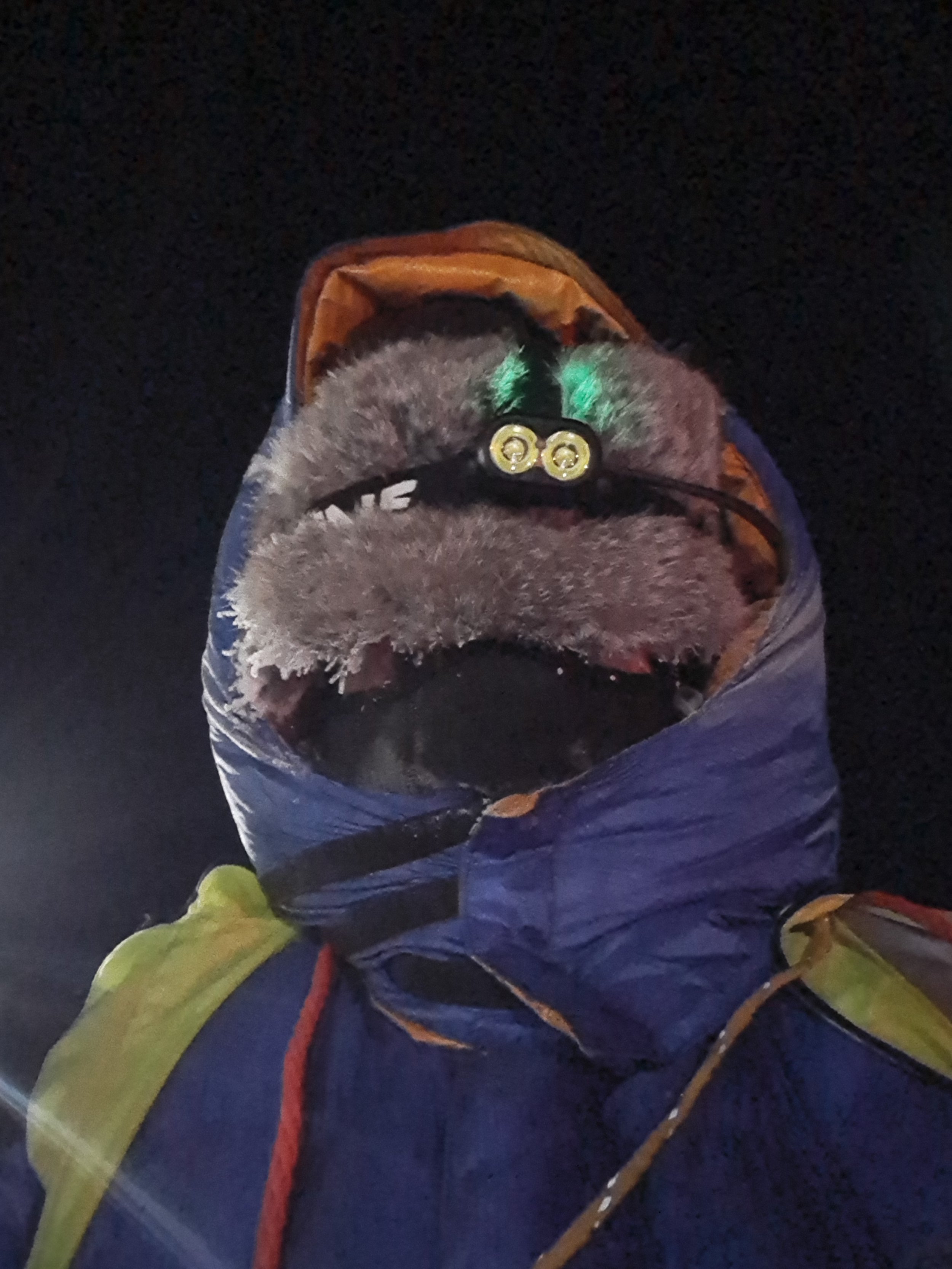
Museum Rooms Camping & Survival
Boots, Hats and Clothing
“Survival can be summed up in three words, never give up. That’s the heart of it really. Just keep trying.”
Quote Source – Bear Grylls
Survival & Camping
To echo Bear Grylls words survival is largely a state of mind, but there are physical limits to endurance as well, like trying to run a marathon at the North Pole with two broken ribs (as it turned out later), but for our money it’s about staying in control, not getting to that total point of exhaustion, not making a stupid decision worse, by making an even more stupid one, and we are masters at that one.
For example at the North Pole it is about staying in control, too much energy = too much heat, the body dissipates heat through sweat, sweat freezes, body temperature drops, and fingers and dangly bits drop off, it is physiology - how the human body works. Not enough energy and you start to slow down, the body withdraws heat (in the form of blood) from extremities to protect the core organs, bits drop off. You get the picture.
Ask Randolph Fiennes, or the French surgeon we rescued from close to North Pole, a “pulk-puller” - (a person hauled sled box) he was in poor way, very frost bitten with blackened fingers, which he would probably have lost; he was a surgeon - which was potentially his career over as well. We tried to console him, in our school boy French - not sure it really helped. It was tough to see the anguish and the final understanding of what it really meant to him; all those lives he could have saved (he might just have done boob and nose jobs for all I know) now potentially no longer. We’ve sat with people hands between our legs and under armpits, trying to save fingers and toes, body warmth is the best way to achieve it, and morals and all other forms of dignity go firmly out the window in these situations.
Our favourite type of camping has to to ditch the tent and to just be under the stars in a gortex bivy bag or just on a bed of pine branches and a couple of reindeer skins. There is something magical about sleeping out in the open, under the stars, we’ve done in -22c and seen the `Northern Lights’ all around us - a magical experience.
We’ve been lucky enough to camp in Antartica, and there we had simple to erect tents, but medium weight and robust design. There was something “Scott of the Antarctic” like snuggled up in you sleeping bag, with the head torch on writing up your notes in your moleskin notebook, and yes I did have to “step outside” and as a homage to Captain Oates I couldn’t resist saying “I may be gone some time” - I went for a pee (see little story to the right) - his sacrifice and selfless action was something else. On his 32nd birthday, he chose certain death by hypothermia stepping out into a -40c blizzard rather than place the burden on his companions to care for him. I take my hat off to the bravery of his action. I don’t think I would have had his courage to commit such a selfless act.
When selecting camping equipment you have to think what you are using it for? As a base camp or taking it in a vehicle you can afford to go big and have a bit more space, or if it is the mountains or polar regions you need to think robust, maybe a geodesic shape. Tents have come along way since our “Millets” special and we wouldn’t knock it, it survived the Cloud Forest of Ecuador, and still went on to give good service for local people (we hope). Apologies if it was a bit smelly!
We ended up with several tents, a larger car camping tent, a Gortex Bivi-bag for roughing it and a lightweight tent, and just a simple “basher” for a bit of overhead cover, and several survival shelters, which we have used in anger, including one sewn from rip stop material, by the ladies behind the bar at Plas-Y-Brenin, long before they were available commercially. For groups they are great, particularly on a nasty day in the mountains, and with rain and blustery winds, you can get everyone under a shelter and it soon heats up, crack out the flasks and food, and it gives you time to assess everyone, and give those who need it a boost.
If you are hiking you want as light as you can get, and we chose in the 1990’s a Phoenix Phreebooter which was a compromise between weight and robustness. At 2.44kg they are heavy compared to todays offerings, but at the time it was lightweight miracle. They pitched outer first which was a god send when the heavens opened, or you just needed a shelter for fishing. Now we would probably go for something like an MSR Hubba Hubba NX or for high mountains the North Face Summit Series™ Mountain 25 2 person tent. But like all technology it is time dated and something else better may come along. But newer doesn’t always equate to better.
It was tight for two and perfect for one with an 75 litre ruck sack, taking up the spare space, and a small porch you could rustle up a meal on your MSR and a bag of rice in your trangia kettle, without having to get out of your sleeping bag.
The Phreebooter was a tough little tent and we wilderness camped in the mountains in snow and rain. My mate “lived” in his for 50 nights on a road trip and after years of service, it finally met its match at Mount Cook in New Zealand disappearing into the sky! Ours survived 30 years of service, and is now in the Museum collection.
-
No 1 Has to be don’t fall fully clothed with all your Arctic clothing on in -40c into the swimming pool (we had just built to start the North Pole swimming Club, at Ice Camp Barneo), trying to retrieve your mobile phone you had just dropped in. And Number 2 has to be and don’t piss yourself laughing at the poor unfortunate sod who did and then nearly fall in yourself helping them out. Just saying.
We did of course get him sorted out into the warmth and into some dry clothing.
Seriously though it is all about heat and energy management, and of course not leaving it until it is too late to ask for help, and Polar adventure is littered with the dead and maimed from those who tried to tough it through.
Bring out the inner whimp in yourself and know when to quit - If that is an option. Sometimes it isn’t and you have no choice bit to plough on.
-
Knowing when to quit is essential and equally if not more important is knowing when not to start in the first place!
This is a classic story of making a bad decision which leads to an ever descending spiral of incidents which could have turned out disastrously; not be be over dramatic about it.
In chess terms this is called Zugzwang when ever subsequent move is makes the situation worse.
Part 1
We had planed a winter assault on Skafell Pike 978 metres, 3,209 ft and I had picked out a challenging route to the summit. It wasn’t a mountain we had very been up before, but we were mountain fit and experienced with dozens of hikes, mountaineering and indoor climbing skills, as well as formal training, so whilst not underestimating the challenge it was well within our capabilities.
We took the Landrover up at stupid o’clock in the morning and arrived early, we parked up opposite a pub, and I started getting kitted up.
“Come on mate” I said to my buddy ‘lets get going, we haven’t got up at 2.30am to sit in bloody a car park.’ It was snowing heavily now and a wind was picking up, it was very exciting and I was keen to go.
“I’m not going” he said “ I feel dog rough.” and he looked it too, a bright red hooter, with snot running out and a lovely grey complexion. He sweating up.
“You look rough” I said, “Thanks I feel it, I’ll stay and have a sleep - you go and play.” he mumbled and then closed his eyes.
In truth I was mightily pissed off, we had been planning this for months, and now he calling off for a little cold! He was already snoring in a deep sleep, by the time i slung my backpack on and stomped off - this was my first stop point - I should have just stopped - I didn’t - anger and pride getting in the way.
If I had have stopped to think about it I probably wouldn’t have gone.
I crossed an ice and snow filled gully on route, and this was my second stop point - I should have turned back. I had a 36m 9mm rope, but by the time I got to the other side - a very high risk scramble - on sheet ice, I realised I would not be able to return by this route, even with a rope as there was nothing to belay off, and to climb down was too risky. The wind was starting to pick up and the snow was being driven directly into my face. It was hard going.
I summited, and had a brew, but it was only a tiny flask, but I did have a sandwich, which I ate. it was bitterly cold and was now blowing a near gale force wind, with driving snow - it was almost white out conditions, and I hadn't seen another person all day. I was starting to rapidly chill down and knew I had to get off the summit.
I checked my map and pulled out my compass to plot another route, but I realised quite quickly I couldn’t actually read it properly. My first thoughts were that I had gone snow blind. (which was nonsense of course). I rubbed my eyes to try to get better vision, it was like rubbing grit into them, but they cleared enough to plot a route off, but not enough to really study the topography.
I set the compass in a blurred way and then went to put away the map, when a gust of wind suddenly ripped the map out of my hands and it sailed into the sky, lost in the swirling melee of snow. At least I could follow a bearing. I put the compass safely in my pocket, where I could easily get to it.
The walk down wasn’t too hard, apart from the deep snow and driving wind which was tiring me out. The wind was predominantly blowing onto one side of my face, which was getting numb. I put a balaclava on. It was bitter, and my hands were getting cold despite a pair of gloves and over mitts.
My eyes were steadily getting worse and the white world was now turning a shade of grey, like someone had turned the lights down on a dimmer. I entered a dip and the snow was blowing less so I thought it would be a good time to check my bearings. It was gone. The compass wasn’t there. I did that whole check and check again. I must have slipped it outside the pocket rather than into it and in the deep snow and driving wind I would never have seen or heard it fall.
Ok* I said to myself don’t panic, go down - use the contours. I panicked, not full fledged, but enough to make me hurry up, I fell over, I picked myself up, I fell again and sprained something. Calm down I said to myself and I did. I had no map, no compass, my vision was fading, a sprained leg / bum, where I done that splits thing you do when you slip, and I had no idea of the terrain.
*I omitted what I really said which was expletive ladened but I will leave that to your imagination.
Ok I thought what are your assets. No 1 mind set - I will survive. I have a body bag (sorry survival bag), warm winter clothing and water / wind proofs, a rope, a mouthful of lukewarm coffee, water, and two Mars Bars.
I ate one of the mars bars….now one mars bar. I also had a head torch, a survival signal strobe, a whistle, a single walking pole, and someone who knew where I had gone, and when I was due back. I also had a watch.
At the moment I was going down and that is all that mattered. It was one hour till dust, and I was already a hour overdue - maybe help was on its way?
I was staring to move more slowly and with a limp. My energy levels had dropped and the snow was thicker the further down I got, but the wind had dropped a bit and less snow was falling. Every thing. was now grey, my eyes were so sore, I tried not to rub them, but didn’t succeed. I fell into drift, then another, and I just lay there.
I was whimpering by this point and it was now dusk, my thoughts we’re turning to snow drift snow cave and a night on the mountains, it would be fine I kept telling myself, stick the strobe (you can see it for miles) on the walking pole and someone will find you. I was getting seriously worried about my vision.
I climbed a wire fence and got snagged on the barbed wire. I let out a mini whoop of joy; wire fence, barbed wire = people. I struggled on with renewed vigour, I put my head torch on, not that I needed it, the snow gave good light, but if anyone was looking for me they would see it.
No one was looking for me - unbeknown to me my mate was still fast asleep, dead to world in a feverish state. I walked on.
Part 2
I could smell and hear the rush of water, but couldn’t see it until I was almost on top of it, the river was in full spate, it was inky black. I could make out lights in the distance and what looked like a phone box!
Crazy decision - I was all in - exhausted, cold and getting to that point of not caring. I went up and down the bank trying to find a crossing point there wasn’t one. I made a descion to cross the river. I prodded at the water to try to gauge the depth but the current was so strong it nearly took the pole out of my hands.
It was way beyond safe crossing depth, even with a pole. I made a decsion to cross with my boots on and waterproofs on - stuff it. I got in at a slackish point and put my pole to steady myself It was already way over my knees, the supposed do not exceed level, but I had crossed dozens of rivers before. It was dark now and the dark water noisy and scary. I was fully committed, I was soaking wet and the night in the snow cave was no longer an option. I ploughed on.
At midway point the water was almost splashing up to my waste and I was struggling to stay upright. I shuffled little steps, taking a diagonal route, it was hard going, I lost my footing and stumbled a few times, putting my hands out to steady myself my gloves were now also wet, and the water was icy - I was all in.
I don’t remember from this point to standing in phone booth or how I got there, or out the river, I must have been on auto pilot, I was shivering - which was good, at least I was generating heat. It was gently snowing. With the aid of my head torch I could just about make out the dial. I called my mates wife reverse charges, I could her here asking who it was, eventually she accepted the charges, and I explained I needed pick up. I gave her the number on the phone box and then nothing.
The houses I thought I had seen had gone. I sat on my pack in the box which smelled of wee. I drifted into a semi comatose state. I had no idea of the elapsed time.
“You look bloody awful” said my mate. What happened. “I think I’ve gone snow blind*” I said - I can’t see.
*Snow Blindness is caused by high HV usually in the Polar regions.
I have never been so grateful to hear from someone. Apparently my mates wife, had called the pub, and the pub seeing there was a White Landrover outside has gone and tapped on the window.. My mate had asked for phone boxes, assuming I was somewhere local. and I was at the first one the pub sent him to.
Somehow in all the drama I had navigated, probably more luck than judgment off the summit and almost back to the carpark.
I stripped all the wet stuff off and sat in the Land rover, whilst `I was driven to Westmorland hospital to sort my “snow blindness” out and a check up. The snow blindness, which turned out to be a severe case of conjunctivitis, with my eyes full of yellow pus, probably caught from my mate, and exacerbated by the wind and snow, and within 45 minutes of getting some drops and having load of gunk wiped out I could see again. it was such a relief.
I ended up driving the five and half hours home*, as my mate “died” on the back seat. I was so lucky, and also not, I had just enough kit, food and drink to get me through, and enough knowledge to get myself down a different route. But I was also so stupid to start with and things could have panned out a whole lot worse. The river crossing was I admit a desperation move and, I was out of control at this point. There was actually a crossing a mile or so up the road, but without the map I could not have known that. Had I have been able to see better and without that anxiety I might have made better decisions?
*This is an example of staying in control, I was done for, or so I thought which led to poor decision making, yet in reality I had loads more left in the tank, or I wouldn’t have been able to drive five and half hours.
A short rest and my body and brain had recovered. I guess ultimately I stayed in control enough to get by, and navigate home, but in reality I should never have set off to start with.
I remembered eating that last Mars Bar, on the drive back, it tasted like Heaven! He was still snoring in the back oblivious to the world. I also owe a big debt of gratitude to my mates enterprising wife and her quick thinking - so thank you.
-
Having stepped out the tent in the early hours of the morning - middle of the night in freezing cold - ice and snow everywhere - carefully avoiding the “singing” Weddell seal which had hauled out just outside the tent. It was singing a hauntingly beautiful song, which went on most of the night - I can see why people believe in Mermaids. Anyway back to the story, I went down to the “beach” to take a leak. Suddenly there was a crack like a rifle shot and with that all the penguins started to leg it up the beach as fast as their little legs would carry them. I wasn’t sure what was going on, but figured if it was good enough for them, then it was good enough for me - so we all went to high ground, and stood around waiting. Without any further warning what I can only describe as a mini tsunami swept in and had I still been on the beach - I would almost certainly have been swept out to sea and probably never been seen of again. It took me a few moments to realise that the Glacier had calved off a huge chunk of ice, and that was now bobbing about in the bay. So I would like to say a big thank you to Mr and Mrs Adelie and friends - you “saved my life.” There was also an element of “Karma” with my Oates quote as I left the tent. You should never tempt fate particularly in the Antarctic, when you are one step away from it going wrong. I was as it happened nearly was “gone some time.” Permanently! In honour of Captain Lawrence Edward Grace "Titus" Oates, officer and gentleman.
Not what you think - unless of course you thought it was various items of Tinder for fire starting materials - fungus - blackened cloth - Fire Sticks - and flint - top right - all you need is a steel.
Foldable iron Trivet, goes in a hard wearing canvass bag, which stops everything else getting covered in soot. These cheap, but robust kettles will last for years.
The ubiquitous “Leatherman” this is the “signal” version, but they are all very robust - The “Squirt” is our must take and stays in the bag
Survival is not just about the right mindset - the right kit helps as well. Sometimes you are better off buying locally as they often understand what is needed for the conditions. Other times you simply can’t get what you need. If you want to keep you nose - keep it covered, even in -20c you can soon get frost nip / bite.
“Survival and camping Items in the Museum Collection”
— Quote Source - The Curator

1970's / 80's Puma - Great White Hunter Knife - used for gutting game - bone handle for good grip and anti slip thumb guard.

Vango folding stove - great for mountain camping - the gas bottle can be out the way. It takes a lot longer for water to boil at altitude.
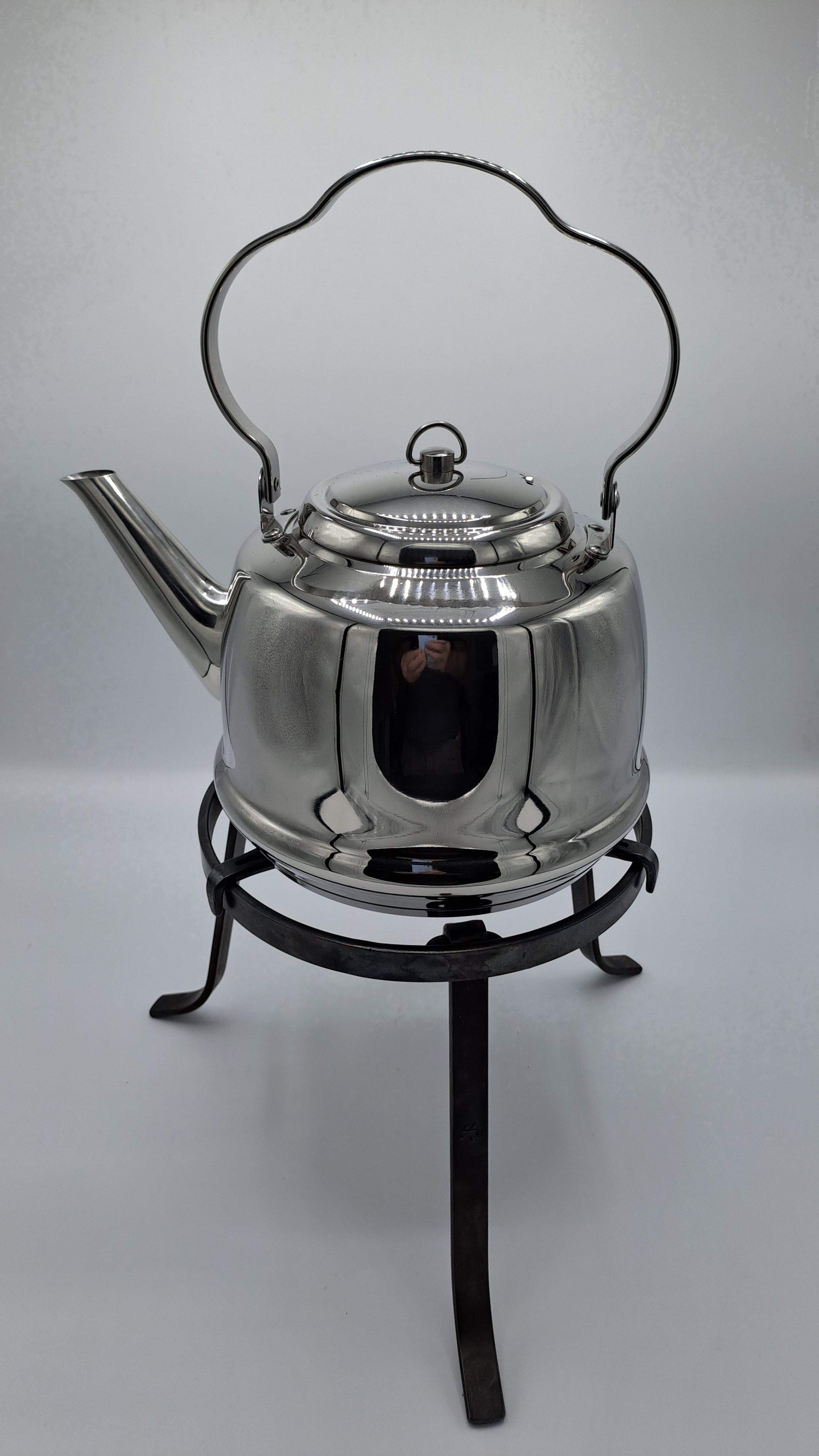
Iron folding trivet - great for "brew' stops - We have an iron tripod for cooking. Kettle will top up the whole team.
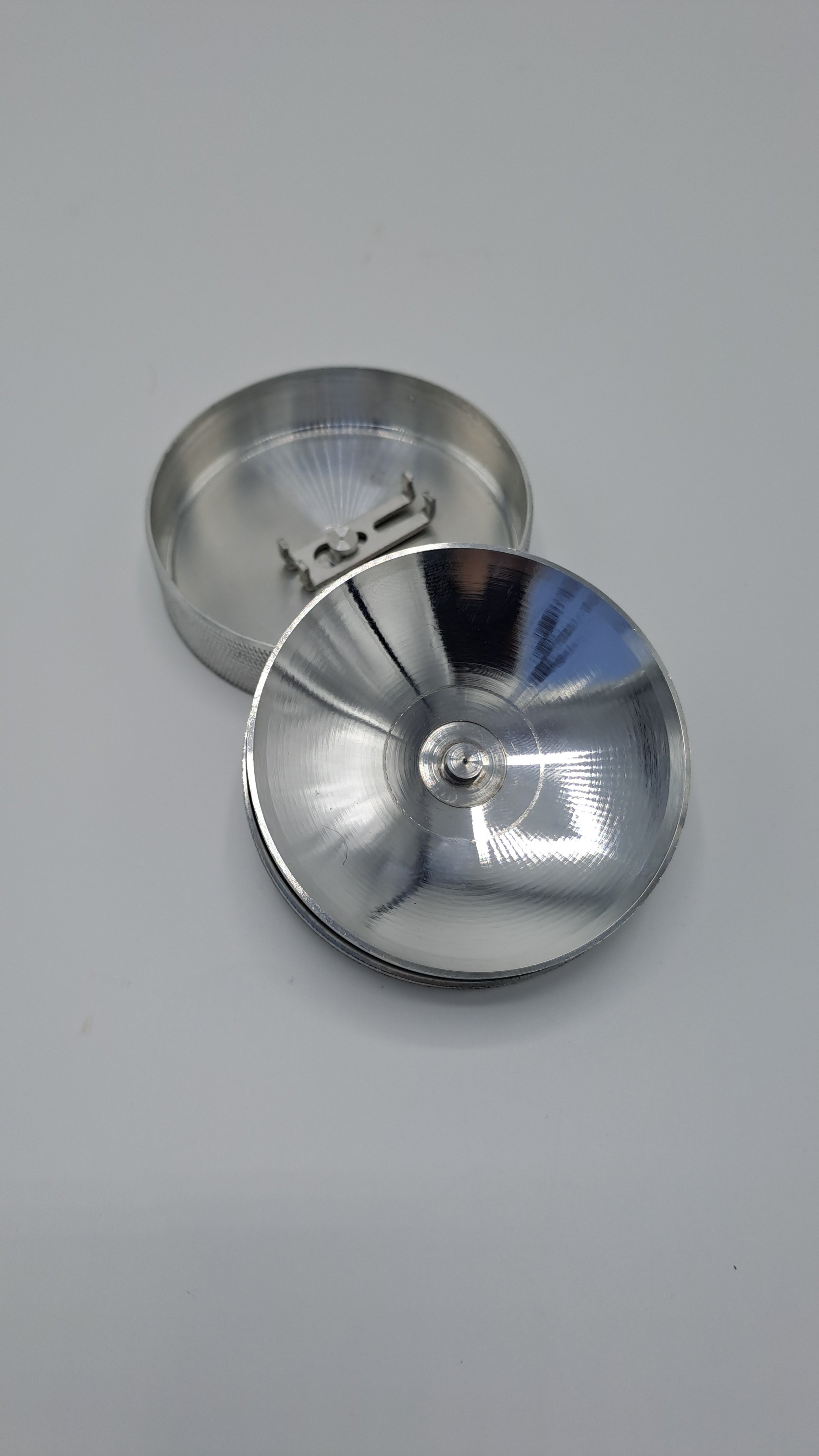
Solar fire starter - works by directing the suns rays - great for the Sahara - not so good for the Welsh Mountains.

Not what you think it is! Unless you thought that it was various forms of tinder - black cloth - fungus - fire sticks and section of flint.
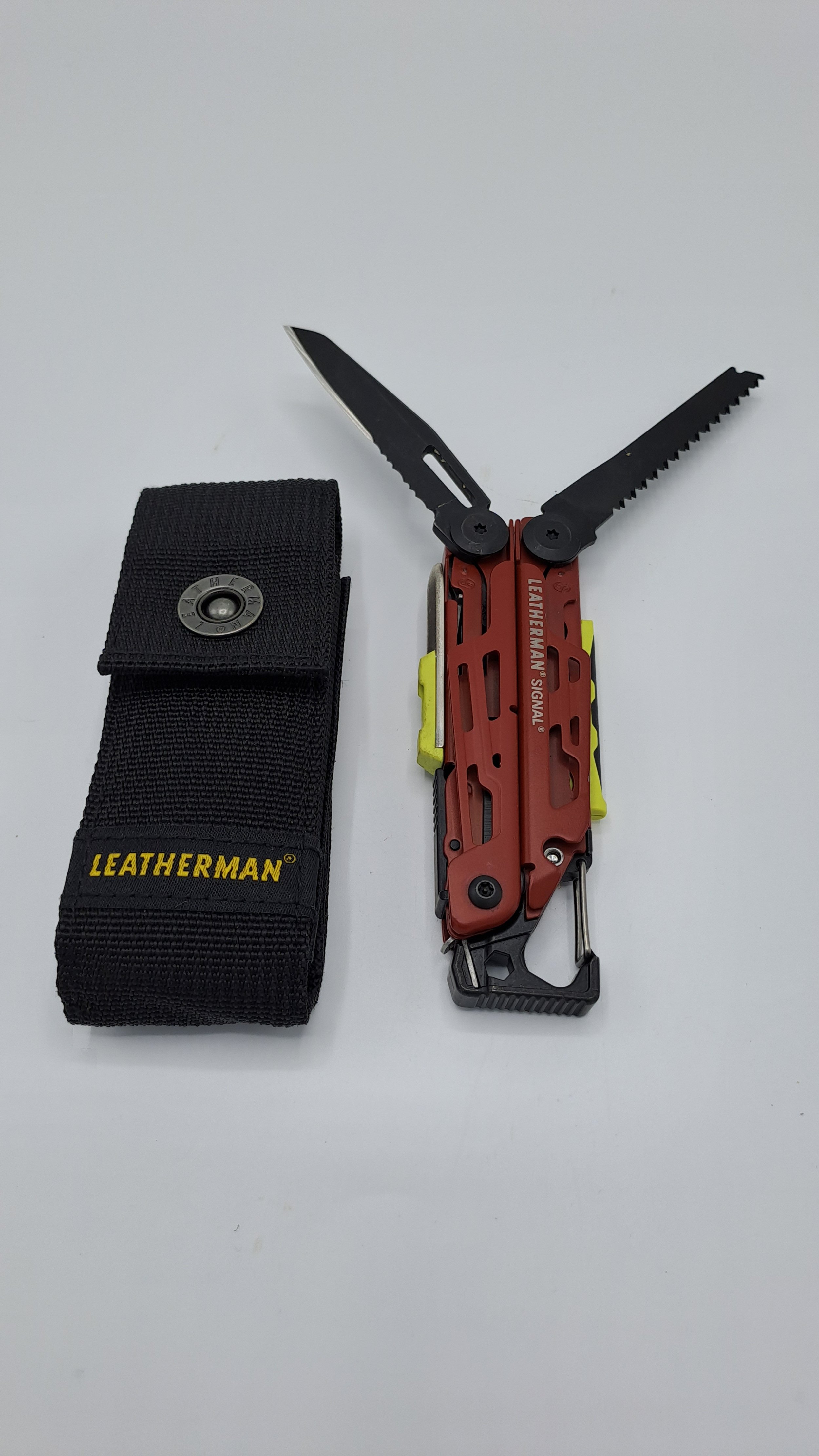
Leatherman - multi tool - original and the best, robust pliers - great also for sailing to fix everything!
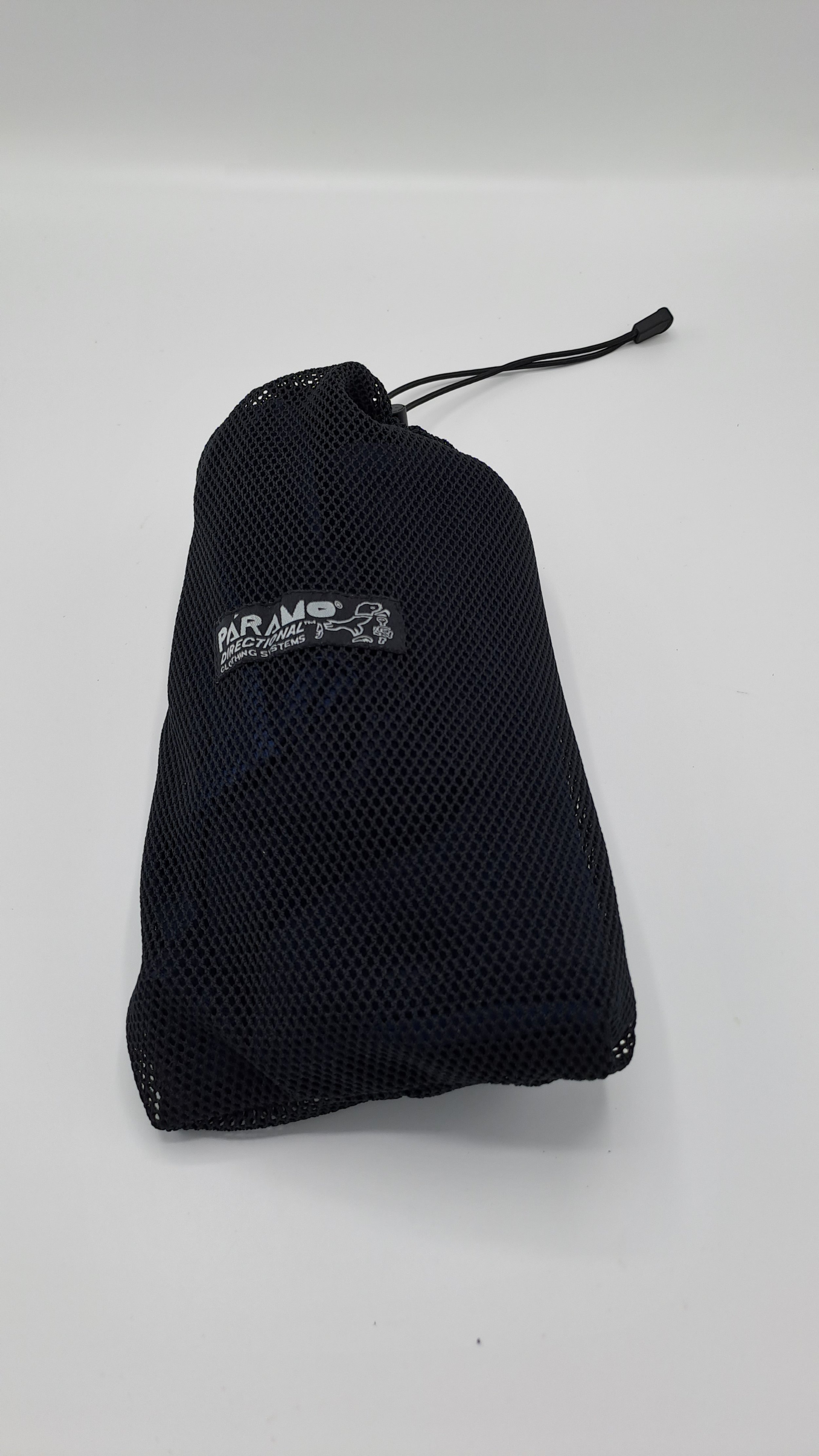
Another essential - quick dry tool - this one is large enough to hide your modesty changing for a Polar Plunge.
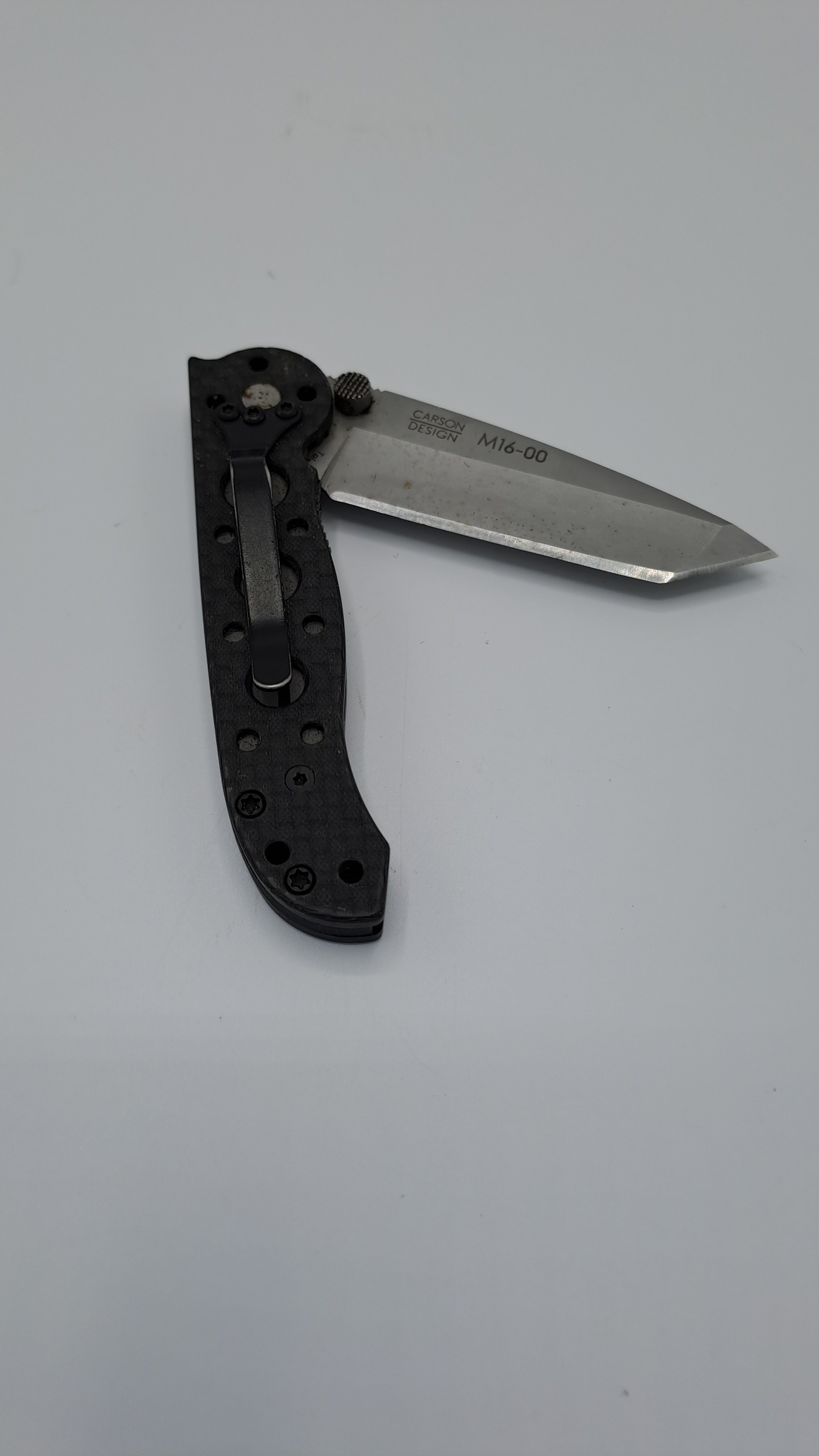
CRKT M16 "Tanto" Knife - our go to blade, it will butter bread, slice a water melon, prepare a meal and slice a chicken breast, what more do you want?
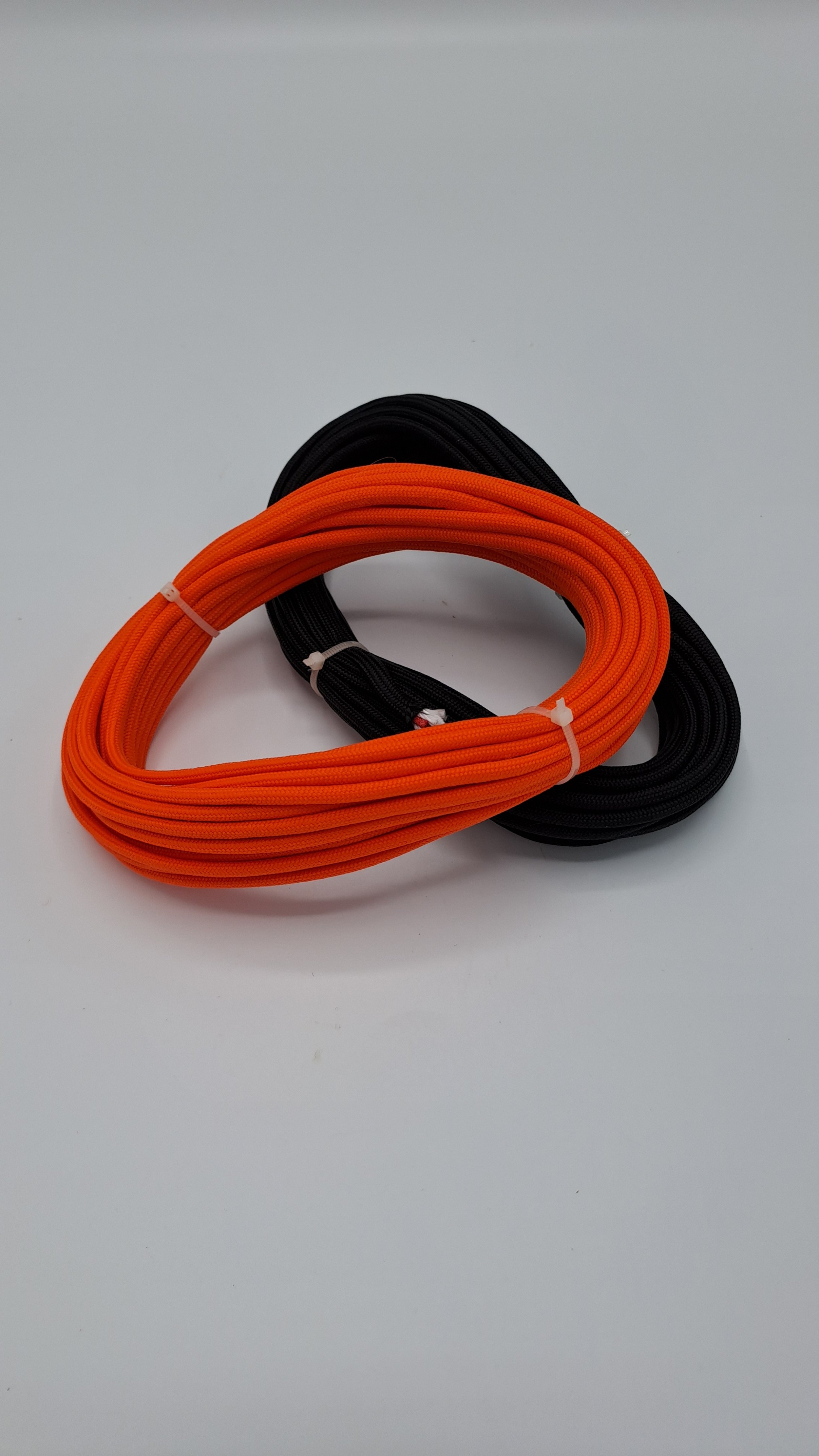
Paracord with a difference - 550 Fire cord - is paracord you can strip the centre to make quick light tinder.
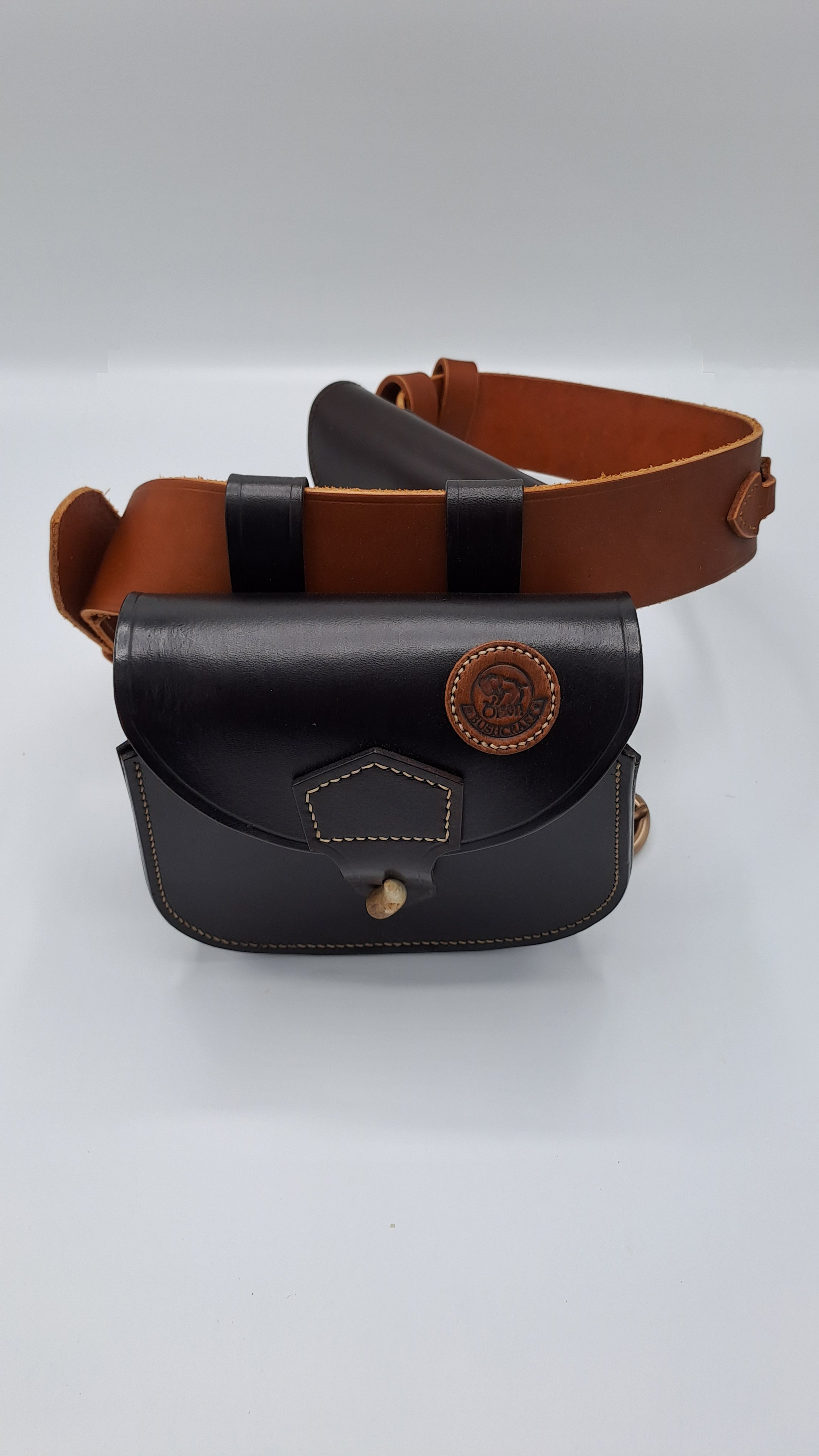
Beautify made "Essentials" and "possibles" leather pouches on a "pulling" belt. Holds "everything" of use!
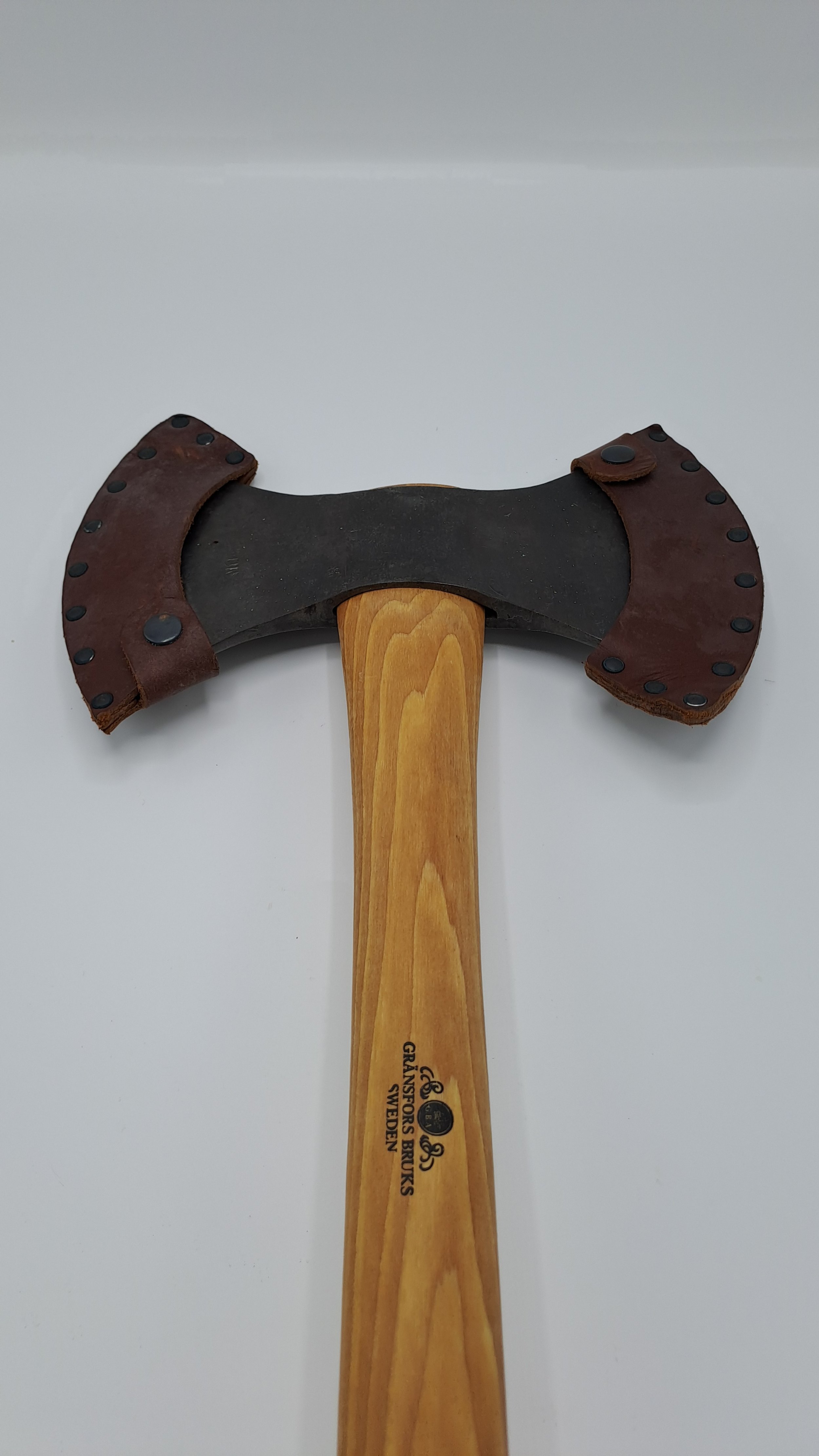
Gränsfors Bruk - double headed Axe - can be useful if you have to hack out a root for example - one side you can blunt.
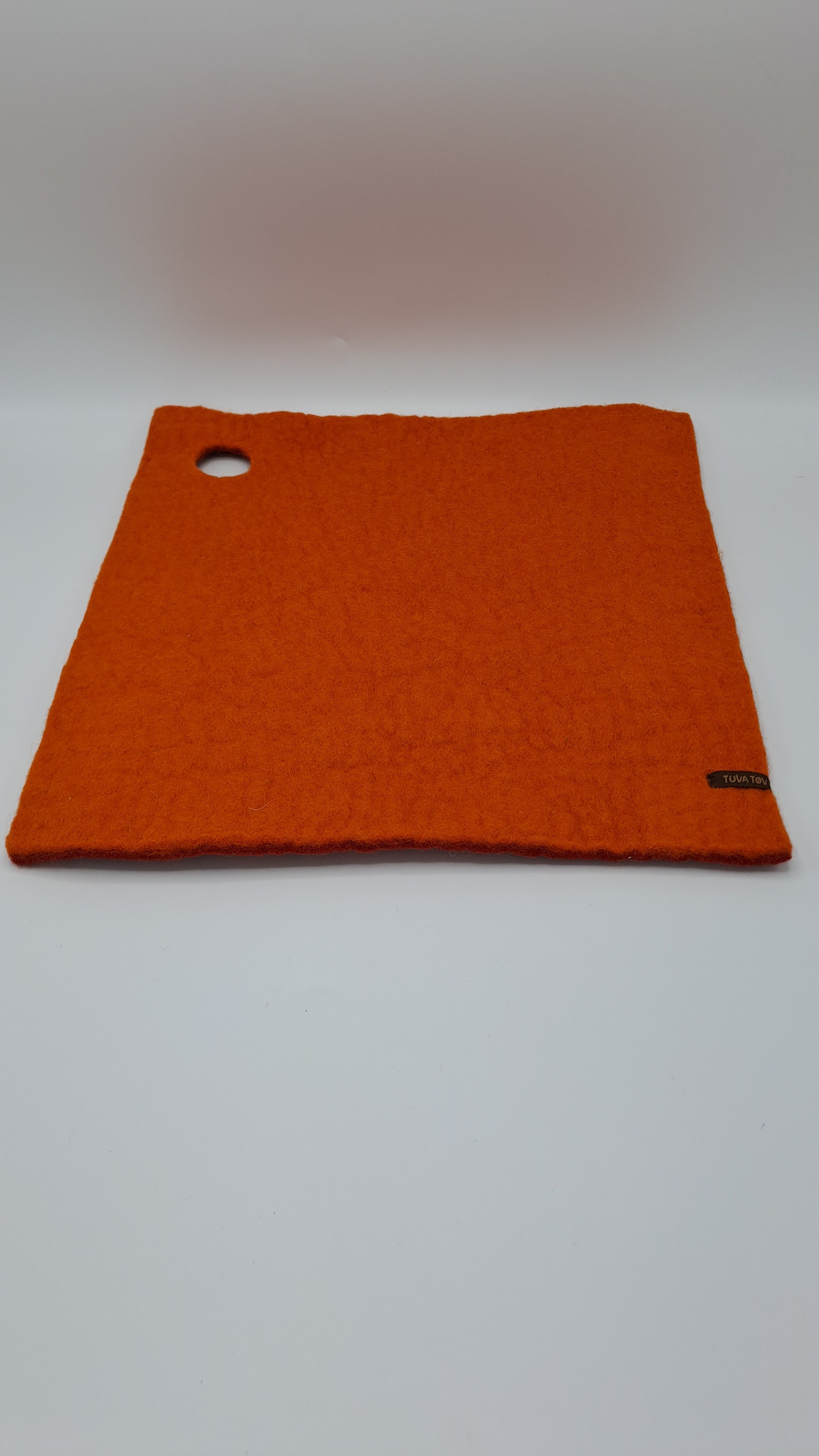
Essential bit of kit - felt sit mat - keeps and the cold out and stops you getting a wet bum - which can be an issue in cold weather.
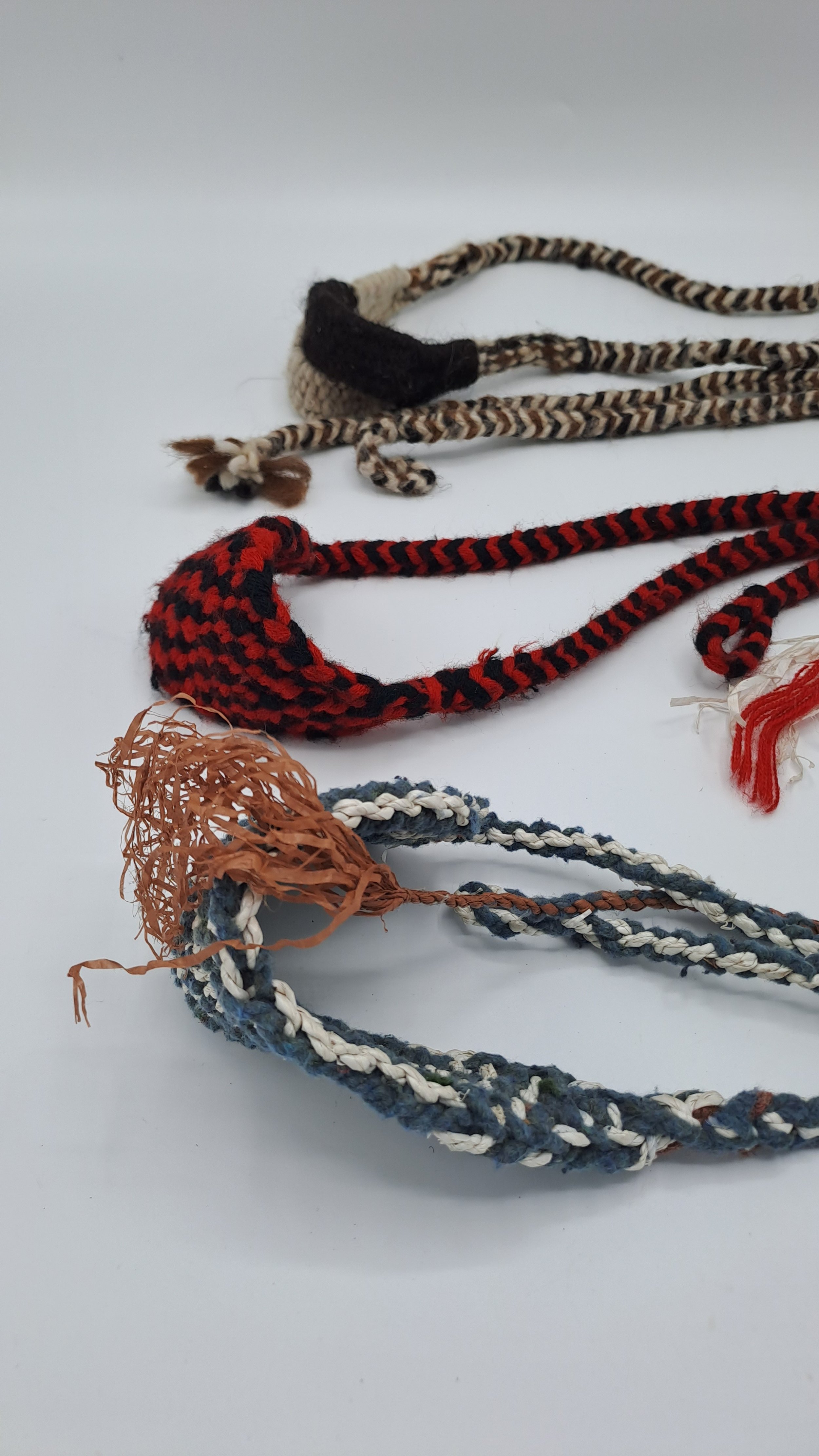
Sling shots - home made from wool and Polypropylene - Peru and Ethoipia respectively.
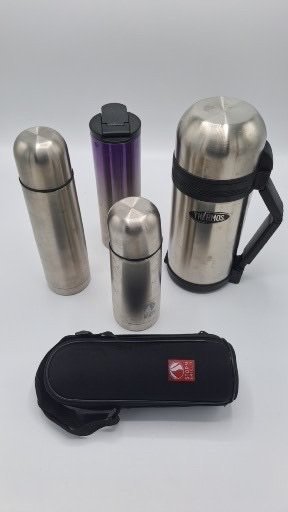
Various flasks and containers, to keep food and drink cool or hot. Great for the mountains / boats and the car.
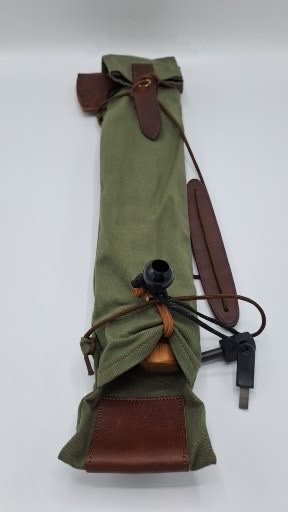
Canvas and leather carry all, with tree hand saw and Granfors axe, modern flint and steel, you can take on the world.
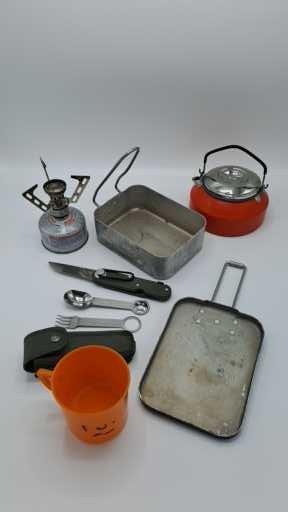
This is pretty much our Rio Mazan and Chamonix climb cooking kit. You be suprised what you can rustle up.
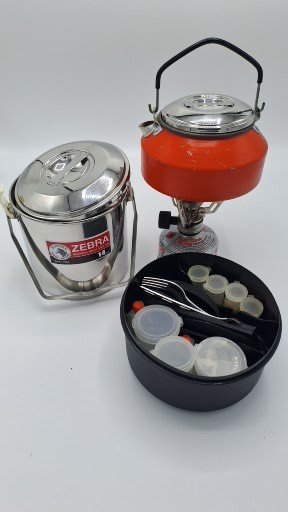
These Zebra brand pots are cheap, long lasting and the survival centres brand of choice.
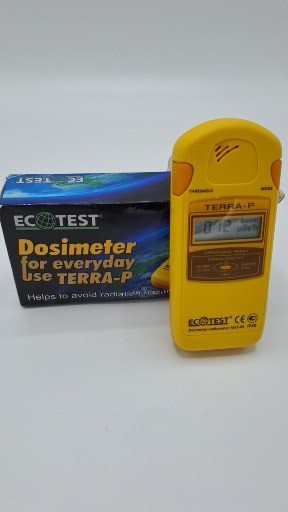
Yes the everyday dosimeter, alfa and beta particulate as well as gammer radiation. one click = one atom. Chernobyl.
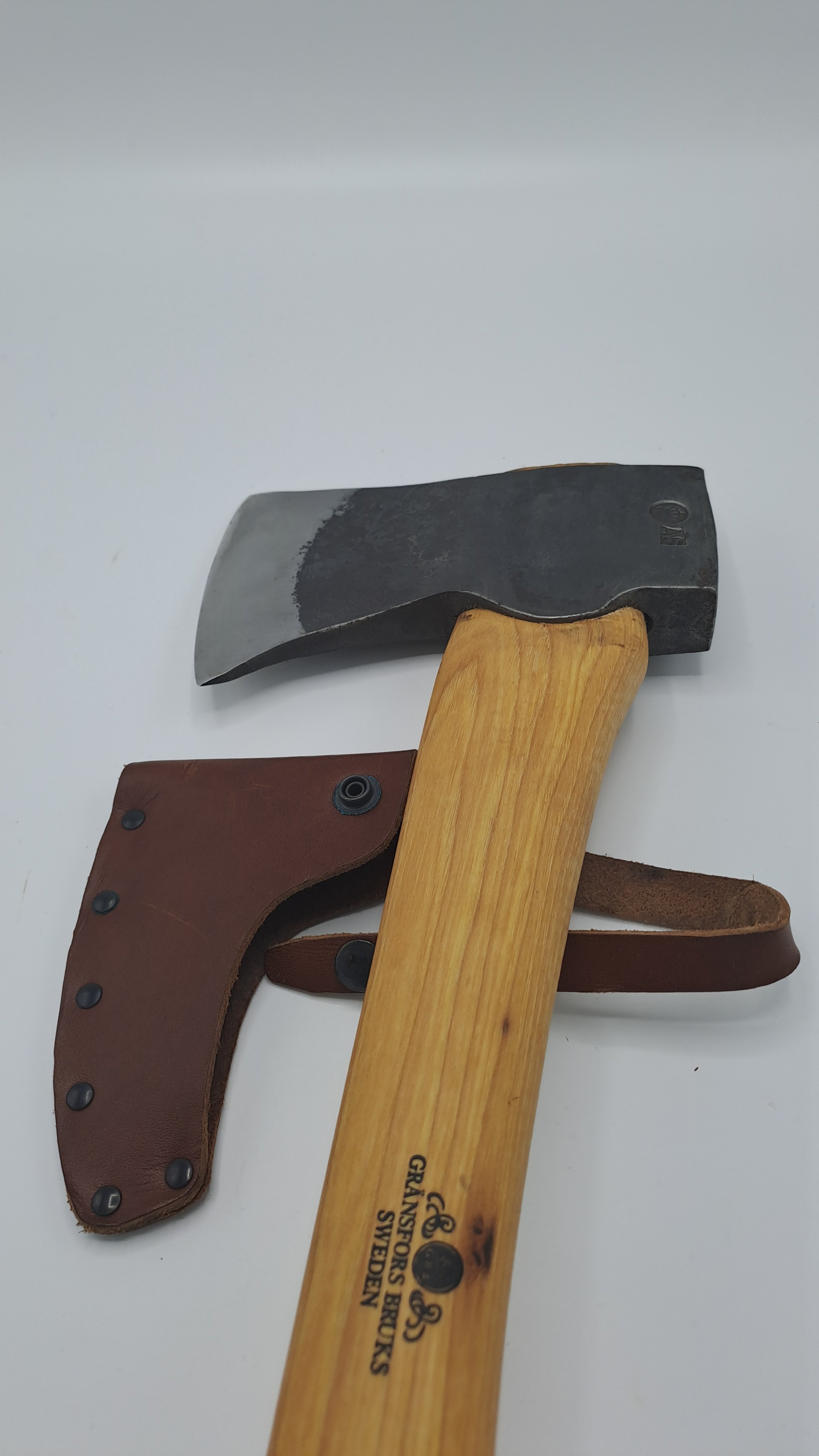
Granfors felling axe, for the forest rather than at home. At home a sledhammer and wedges are often more useful for splitting wood.
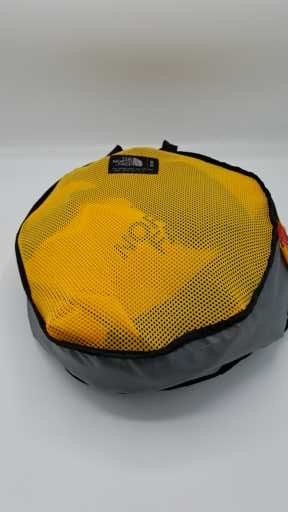
The ubiqitous North Face duffel, we have several black, red, yellow and in different sizes, always useful. Ortlieb are good too.
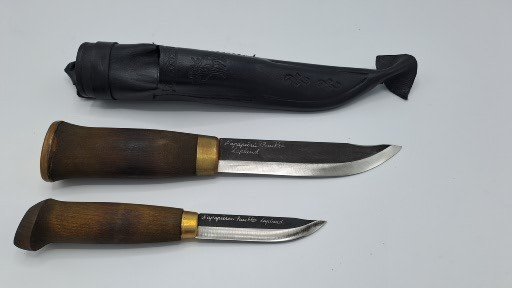
Piggyback 9they both go in the same sheaf - utiliy knives. blacken blade and hand engraved form lapland - tourist pieces but still good quality and useful knives. Short blades give better control in cold weather or wet hands.


